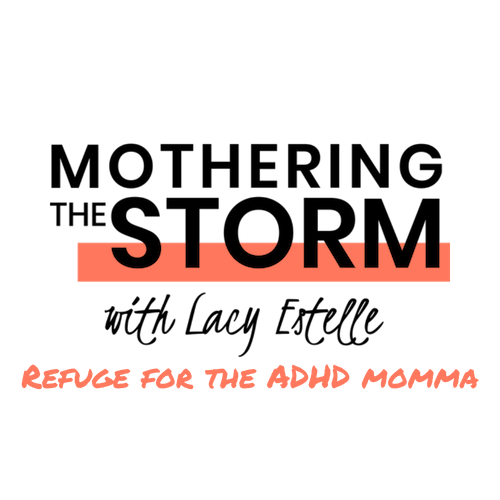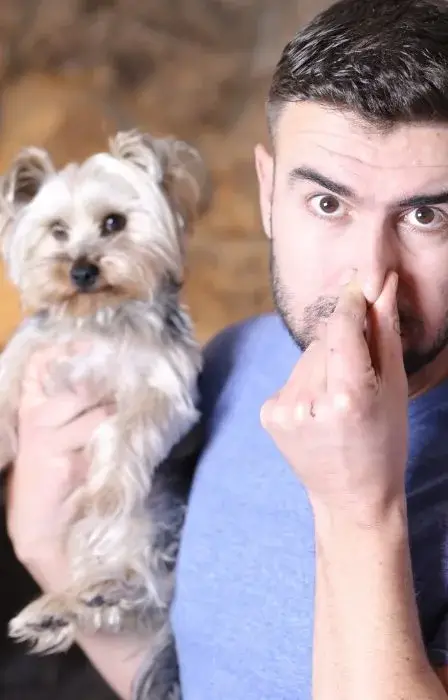This post may contain affiliate links. This means, if you make a purchase from a link on this page, I may receive a small commission at no extra cost to you. You can find our entire disclaimer here.
Tell someone else!
One question that I get asked often is “Is ADHD a learning disability?” The short answer is no but ADHD can make learning more difficult for your child. Today I am going to explain all about ADHD and learning disabilities. I hope this will clear up some of the confusion!
The first thing to understand is that ADHD is classified as a medical disorder, not a learning disability. However, the waters get muddied a little bit by the fact that 30-50% of children with ADHD also have learning disabilities. As you can see, the number varies a bit depending on the source.
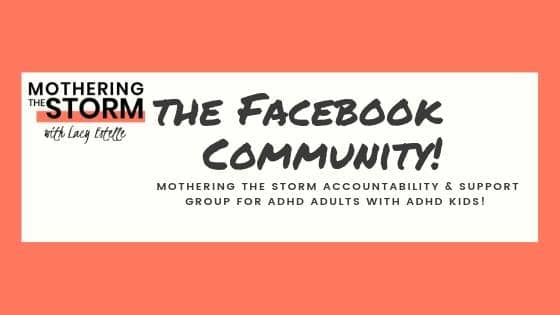
Click Here to Join the Mothering the Storm Facebook Group! An Encouragement Group For Parents who have ADHD and are also caring for an ADHD Child!
The Learning Disabilities Association of America states that the number could be up to 50% while The National Institute of Mental Health reports that 20%-30% of children with ADHD also have a learning disability. Whatever the exact number is, added to it is the fact that ADHD symptoms can make it more difficult to learn.
ADHD kids often have a hard time with focus, impulse control, and sitting still. This can make traditional class room learning a challenge. Being unable to focus on an entire lesson can lead to gaps in information. Lack of impulse control can be another classroom distraction. And trouble sitting still can make homework and study time a challenge.
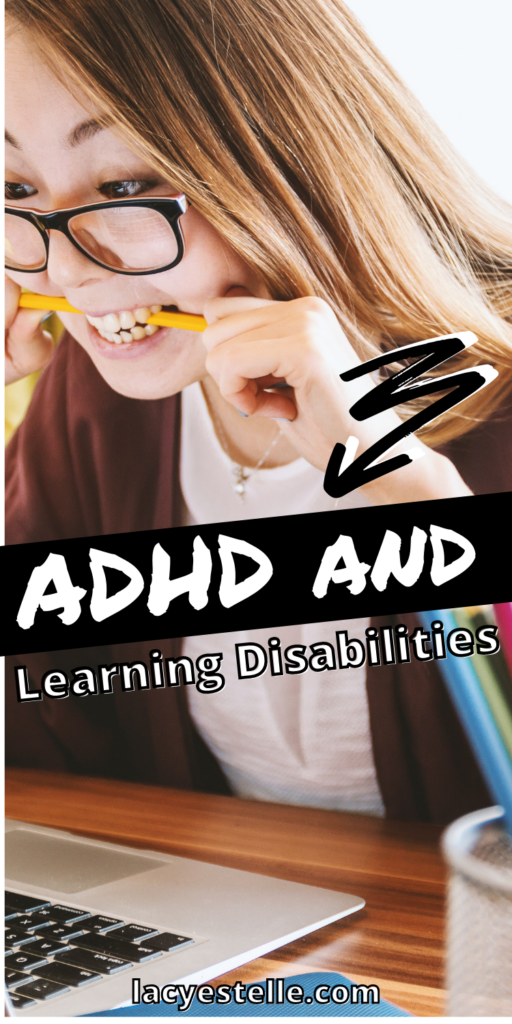
But take heart! None of this means that your ADHD child can’t get a quality education. It just means that your child’s education needs to be tailored to his or her strengths and challenges. And your child’s school will have the resources to make that happen!
If you think your child may have ADHD but aren’t sure what to do next, check out my post, I Think my Child has ADHD, Now What?
ADHD and Learning Disabilities
Another thing to keep in mind is that learning disabilities and difficulties have nothing to do with intelligence. In fact, in many cases, ADHD brains are more intelligent than neurotypical ones. We just process things differently.
The symptoms of our ADHD can make learning more challenging though. The good news for our children, however, is that ADHD and learning disabilities are treated the same by the Individuals with Disabilities Education Act (IDEA). IDEA is a United States law that ensures children with learning disabilities (and ADHD) receive the tailored educational services they need to be successful.
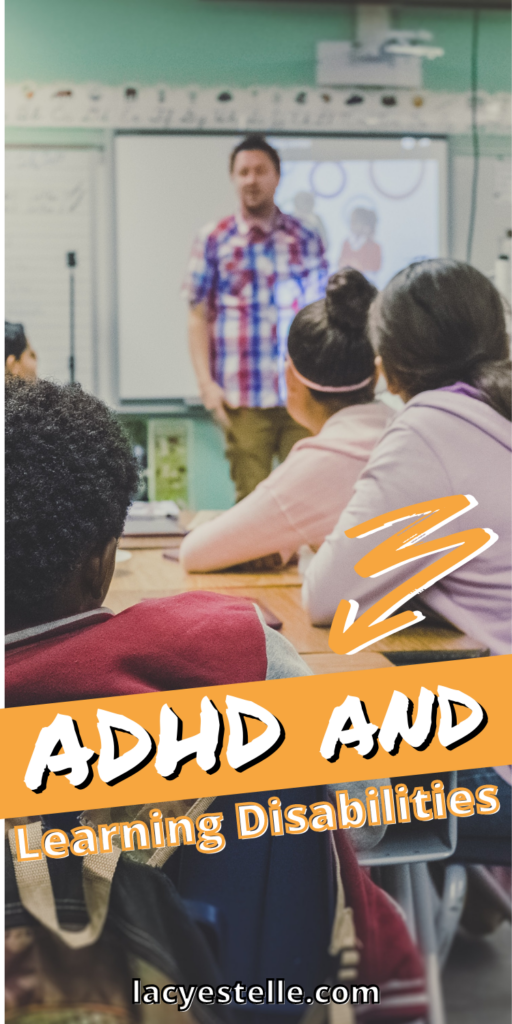
That means you will be able to work with your child’s teachers and other education professionals. Together you’ll be able to make sure your child is getting the same educational opportunities as other students. They can also provide strategies for you to use at home. This can make things like homework time much easier to get through.
The Difference between ADHD and Learning Disabilities
ADHD and learning disabilities can occur together or independently. Their challenges can often overlap but their causes are different and are treated differently. Scientists have not been able to definitively discern the cause of ADHD. But they have found that there are differences in the brain development of people with ADHD.
In 2011 Researchers at the Kennedy Krieger Institute observed that the parts of the brain responsible for cognitive and motor control were smaller in children with ADHD than in those without. David Mandelbaum, M.D., Ph.D., of the Child Neurology Foundation also reported that there were lower levels of activity in the frontal lobe of ADHD children than in neurotypical children. Lower levels of dopamine were sited as the cause of the reduced activity which suggests that ADHD is at least partly caused by chemical issues in the brain.
Learning disabilities, however, affect neurological processing. Think of an auditory or visual processing disorder. In those disabilities, the different parts of the brain responsible for the task have trouble communicating with each other. This interrupts the child’s vision and hearing processes and causes learning difficulties.
With disabilities like dyslexia and dyscalculia, the perception of letters and numbers isn’t communicated to the brain properly which makes reading or learning math difficult. There is much that education professionals can do to help with ADHD and learning disabilities. But first they need to be diagnosed.
How to Tell the Difference Between ADHD and Learning Disabilities
It can be tricky at first to determine whether your child has ADHD, a learning disability, or both. That is because often times the symptoms look similar or can overlap. If a child has learning difficulties they can appear to have trouble concentrating or sitting still. I could just be because of the discomfort of the disability. But could lead teachers or parents to wonder if the child has ADHD.
It can also work the other way. The learning challenges that come with ADHD can look like a learning disability. But it is often the symptoms of ADHD that is making learning hard for the child. The best thing to do is to keep track of your child’s symptoms and struggles and then consult the professionals.
You can start by talking to your child’s doctor and the education professionals at the school. With everyone focused on determining your child’s specific brain related issues, you will be able to get a diagnosis. Once a diagnosis is determined you will be able to work together to come up with solutions!
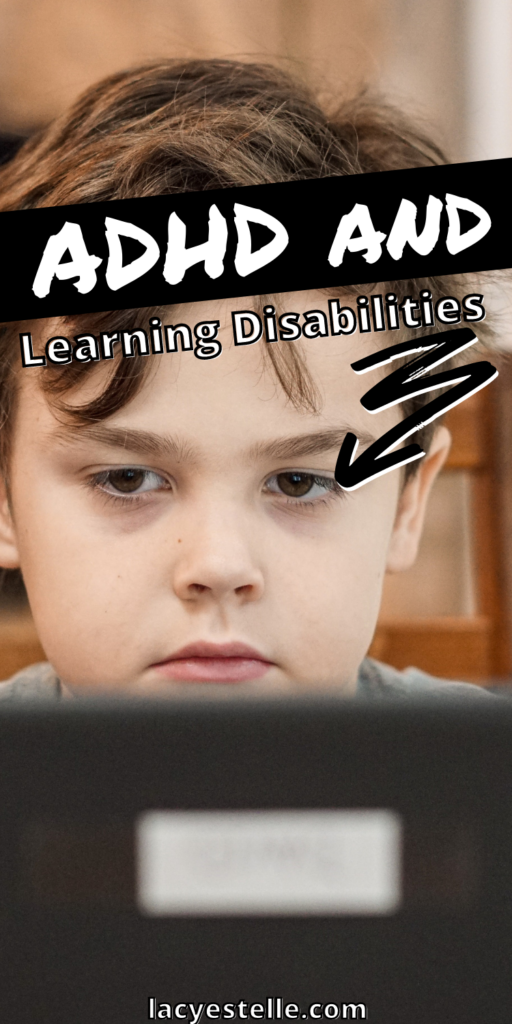
ADHD and Learning Disabilities
As you can see there is good reason for the confusion around ADHD and learning disabilities. But good observation by parents and teachers can help get to the root of the problem. Once the issue has been determined, health and education professionals can be called in. Together you will be able to come up with a plan that will help your child succeed!
Learning can be a struggle for kids with ADHD and learning disabilities. But it is far from impossible! With an education plan that is tailored to your child’s needs, they will be set up for the amazing lives we’ve always envisioned for them.
Let me know in the comments below if your child has been diagnosed with ADHD or a learning disability. What strategies have worked for your family?
